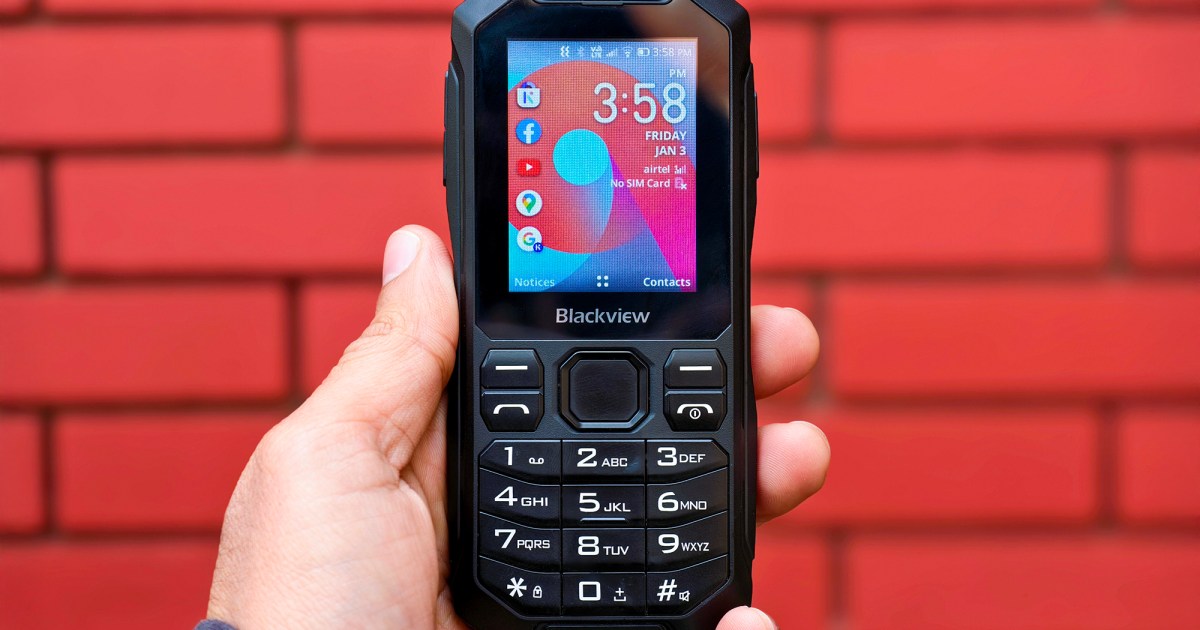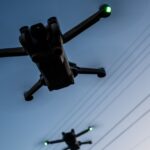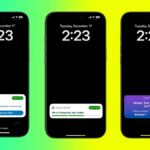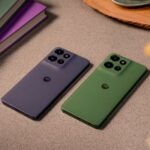My grandma is 87 years old, and it goes without saying that she has a hard time around technology. So, when the battery inside her 10-year-old Nokia 110 breathed its last breath recently, I, as the IT guy of the family, decided to get her yet another feature phone instead of a smartphone. Except this time, I decided to go with slightly more advanced features than the last one. After weighing a few options, I chose a feature phone from a lesser-known brand, but one with promising specs, a guarantee of a secure build, and, above all, Wi-Fi.
However, when the phone arrived, I was so thoroughly impressed with the aspects beyond the ones I mentioned above that I ended up snagging that one and made my Nan wait for the second one to arrive. The phone in question is the Blackview N1000, and there are plenty of reasons why you, a most likely non-elderly adult, might be intrigued by this rather unusual phone, just like I was.
I’m not afraid to use it with one hand
Using smartphones is my bread and butter, but I sometimes feel exhausted at the thought of their ever-increasing sizes. Phone brands relentlessly shove more features into the phones, and that inadvertently makes them expand in size. So, using a light feature phone definitely feels refreshing.
The Blackview phone has a very utile texture on the edges, accented by a combination of plain and ridged design and, therefore, adds to a good grip. The design immediately reminded me of one of the coolest phones from the early 2000s, the Nokia 3220, a miniature night club of a phone armored in four sets of colorful LEDs on the sides. Sadly, the Blackview feature phone doesn’t have the LED, though it offers similarly assuring ergonomics.

I can easily clamp the phone within my claws and reach all the buttons, including those on both sides, without ever having to engage my second hand. The design feels fairly balanced in terms of its weight distribution, so it doesn’t feel like the phone will tip out of my hand when I’m typing. Although you may have already guessed from the design, I will state below the reasons — other than its price — why I also enjoy a sense of security with this phone and never bother even when I drop the phone.
More excitingly, the battery on the back is removable, and the back cover latches on with four screws. The company even adds a tiny screwdriver to the packaging to let you access the battery as well as the dual SIM and memory card slots inside the phone.
It’s surprisingly rugged

Feature phones have a reputation for being indestructible. While that’s an exaggeration, they are unquestionably more durable than smartphones. Blackview is a brand that also makes rugged Android devices in all shapes and sizes — including large rugged Android tablets. So, it isn’t truly surprising that it even gave the N1000 a rugged armor. What is a bit astounding, though, is the fact that this phone is rated for dust and water resistance.
In fact, the feature phone gets an IP69 rating, which guarantees that the phone remains safe even after being submerged underwater for a short period or subjected to high-pressure or high-temperature water jets. The physical ports, including the USB-C port at the bottom and the headphone jack, are shut.
Meanwhile, a claimed MIL-STD-810H certification ensures its strength against shocks and intense vibrations. In simpler terms, you could drop it on the floor, even from a few floors above the ground, and still expect it to be fine. Nothing earth-shattering like the Nokia 3310, but it’s still pretty darn good for a phone that costs less than $100.
T9 typing hits the right nostalgic notes

I am among the people who yearn to use physical keyboards with substantial tactile feedback. This obsession may stem from the fact that I did not spend my formative years cracking my thumb joints typing on delicate touchscreens. The thought of using buttons to type on phones, therefore, undeniably jazzes me up.
T9 further fuels that excitement because it’s as fast as — if not faster than — tapping letters on a touchscreen keyboard.
For those who haven’t used a T9 keyboard on a feature phone, it is basically a predictive text input where you press the number key for all the letters assigned to it instead of pressing it multiple times to reach a particular letter. When pressed in a combination, the phone (or any system getting the input) suggests words based on possible permutations. Here’s what the typing sequence looks like while typing the word “digital” on a regular keypad versus with a T9 keyboard:
| Keypad | T9 Keypad |
| 3-4-4-4-(wait)-4-(wait)-4-4-4-8-2-5-5-5 | 3-4-4-4-8-2-5 |
See how it’s easier and quicker? About 20 years ago, being able to type with T9 would automatically elevate you to the level of “the cool kid.” And, while I am out of touch with what makes you cool among your tween peers these days, I truly enjoy reliving that nostalgia. I even type nonsensical sentences (it’s nearly impossible to type gibberish words with T9) to keep my dopamine junky of a brain kicking.
And despite its insignificant pricing, the keys are very tactile and offer a very cushy sensation, unlike some other cheap feature phones where the keys wobble or are either too hard and loud or too soft to press. The keypad is mostly flush with the body, except for the slightly raised direction pad, and the lack of a gap removes any resistance from the act of sweeping your thumb across to the other keys while typing.
The big flashlight is a useful touch

Plenty of feature phones these days come with flashlights. After all, besides the allure of a digital detox, there is barely a useful feature that can be sold as an upgrade to smartphone users. Many times, these phones have flashlights even without a camera, so the actual utility is limited to illuminating dark spaces. And we can’t deny flashlights still come in handy in our engagement with the physical world. However, they are rarely ever useful for photography unless they are specifically tuned to improve photography.
Blackview takes the flashlight’s utility further and adds a massive unit that is not meant for photography but for performing its rudimentary purpose. The brand doesn’t mention any specs or brightness intensity figures, but to the naked eye, it is significantly brighter than an average phone flashlight. The size of the lens used over the tiny LED bulb attests to its might.
To further supplement the flashlight, Blackview has even added a dedicated button on the side of the phone that can be long-pressed to open it. While the button makes it extremely easy to switch on the light, you must unlock the phone and bring it to the home screen to be able to use the control. But if you work your way around this restriction, the flashlight is definitely a dependable tool.
New year, new ways to conquer my Reels addiction

Like most millennials, I doomscroll short-form videos for short-lived escapades from the harsh realities of adult life. Over time, my brain has been programmed to reach apps like Instagram even when I pick up my phone with an entirely different intent. I have experimented with different ways of dealing with it; some have proved useful, and some have not. Finally, deleting the apps does me some good for a few days until I either rebound to another equally engrossing app or go back to the one I hoped to dump.
Having a phone that does not run Instagram has been some respite in this case. So, instead of deleting the app, I give myself a complete break from the temptations of a smartphone and fidget with the N1000 instead. By doing so, I can allow my rotten brain some time to rewire healthy neural pathways without even having to deal with nomophobia.

The Blackview phone runs KaiOS, a recently defunded but still functional operating system specially designed for slightly smart feature phones. That means there are some apps, such as YouTube, available. While WhatsApp was also available previously, Meta recently pulled the plug due to the OS’ low popularity compared to Android. That said, there are certain third-party clients to run X (formerly Twitter) and Reddit alongside a bunch of games inspired by retro classics.
There’s even a dedicated app for shorts, which you might think could be a reason to relapse. But the scrolling experience is so slow and jarring, thanks to the non-touch interface and the tiny squarish screen, that you would rather give up on watching shorts than keep up with the addiction.
It has LTE and Wi-Fi

Among the factors that have previously deterred me from using a feature phone is the lack of high-speed internet. While I happily devote a lot of my energy to being conscious about my use of technology — not that I always succeed — I do try. That said, high-speed internet is crucial for, well, my sanity.
Fast internet is part of good technology hygiene, I feel. You can’t be healthy simply by eating less; you must eat clean. Similarly, having access to fast internet may be an enabler for wasting time doomscrolling, but it is also essential if we truly want to quench our hunger for knowledge.
By offering access to LTE (actually LTE Advanced, the newer version of the technology) and dual-band Wi-Fi, Blackview allows you to patrol the breadths of the internet without restrictions. Wi-Fi also lets you use the phone without an active SIM, just in case you — like me — envision using it as a detox phone instead of the main one.
The charging cradle is too satisfying

To guarantee the Blackview feature phone is safe from water, dust, sand, and other corroders, all entry points, including the USB-C port at the bottom, are sealed with removable flaps. While that is great for preserving the internals, removing the flap and holding it at the correct angle to insert the USB connector without a tussle can seem like a fuss. It can especially be difficult for the easy-to-assume target group of seniors.
There’s no fast charging. The charging, limited to 10W, will also summon tiresome flashbacks from the era dominated by feature phones, yet the 3,300mAh battery is larger than what you would encounter on feature phones. That means charging at a usual stretch takes a few hours at least and keeping the phone connected — which, except for times when you want to detach yourself from the phone, can feel a bit testing.
These challenges will typically not be an issue because Blackview also came up with a simpler means to charge the phone. It comes with a charging cradle in the box, seemingly inspired by cordless landline phones. You can simply drop the phone in the cradle when you’re not using it and let it charge for that duration.
A solution away from “smart” phones

There has been a surge in technologies that pull us away from the overwhelming and uninterrupted flow of nudges our phones bless us with. While I’m not against being enamored by your phone (I feel that is inescapable in this age), not having your phone constantly buzz is a privilege that the Blackview blessed me with.
Another reason I find the feature phone useful is that it lets me break away from the deluge of online trackers always at work to serve me with personalized ads and reinforce my bubble, surrounding me with the theoretical dead internet. In the AI age, the tracking and analysis of your persona is only rising, and the opportunity (and the responsibility) to defend ourselves — or at least take a break — lies with us.
Even if you don’t believe — or prefer not to drown yourself in — the grim contentions, $90 (at the Blackview official store) on a detox phone can prove to be a worthwhile investment.
Read the full article here














